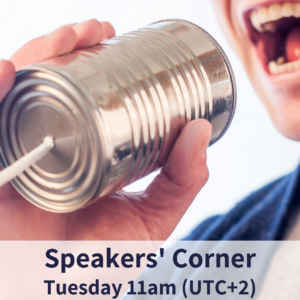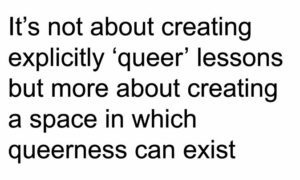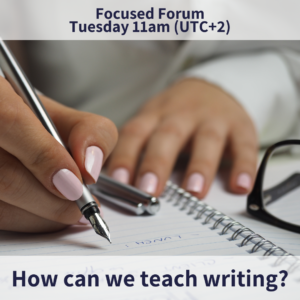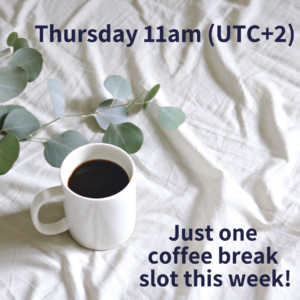Interesting chats as always in the coffee breaks today. In the earlier session, we ended up talking about whether finding a niche in ELT limits you. Whilst people working in after-school language classes tend to be a jack of all trades, when you set up your own business, particularly online, the suggestion seems to be to find your niche. This can certainly help in terms of marketing: you can identify the ‘pain point’ of potential clients/students and provide the answer to them with your particular skill set. Another benefit of finding your strong suit and sticking to it is that it can save you time planning in the long-run as you’re perhaps more likely to repeat similar content with different students. Plus, there’s always the option of starting with your niche and then widening the net once you become established. One downside of being your own boss though, whether you have a niche market or not, is that you need to spend time growing the business.
Another area we chatted about was the vast array of options in ELT and how limited we feel in going after different opportunities. For some, the world of ELT is completely open, with opportunities to travel to different countries, spend time volunteering, or get involved in a summer school course for a change of scene. Other times though, it’s easy to get ‘stuck’ – whether that’s because of homelife, feeling comfortable where you are or perhaps even nervous about starting in a completely new environment, no matter how many years of experience you have.
The afternoon session was far less TEFL-y (!) and we ended up chatting largely about reading – although the topic came up as we were discussing reading aloud in class. One book which came up was Raymond Queneau’s Exercices de Style which shows how a simple story can be told in 99 different ways and another was Riddley Walker by Russell Hoban, which is written in an invented language. There were others – but I have to admit I only made a note of the two which most interested me!






